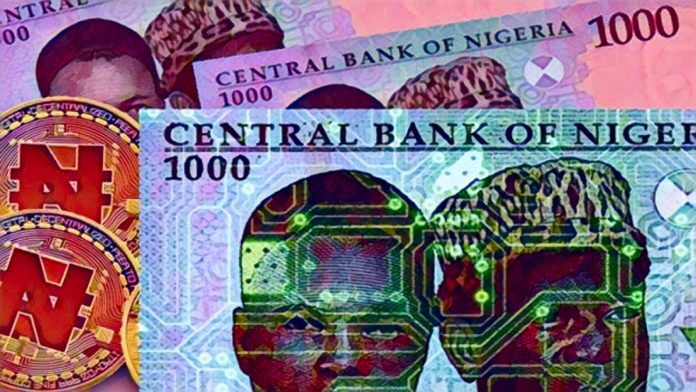KEY POINTS
-
Digital currency adoption is transforming Nigeria’s informal economy, bringing both benefits such as increased market access and challenges like digital illiteracy and taxation fears.
-
The eNaira is fostering financial inclusion among some informal workers, but rural and low-income communities remain at risk of digital exclusion.
-
Grassroots and hybrid fintech strategies are emerging as key drivers, with local training and community integration proving more effective than centralized policies.
As Nigeria pushes deeper into the digital finance revolution, the spotlight has often centered on its ambitious eNaira project, policy debates, and regulatory tensions.
But in the bustling backstreets of Lagos, the open-air stalls of Kano, and the informal transport networks of Onitsha, another narrative unfolds — one that policymakers have largely overlooked: how digital currency adoption is reshaping Nigeria’s vast informal economy.
The informal sector, comprising over 65% of Nigeria’s total labour force and contributing an estimated 57% to the national GDP, has long operated outside formal banking systems.
Yet, with the Central Bank of Nigeria (CBN) introducing the eNaira and intensifying cashless policies, many small-scale traders, artisans, and market women have found themselves at the crossroads of change — not by choice, but by necessity.
In the sprawling Alaba International Market, a trader named Musa, who sells imported electronics, shared his experience with the transition. “At first, I thought it was only for big people with bank apps. But when customers started asking to pay with eNaira, I had to learn. Now, even my supplier in China sends QR codes,” he said, pointing to a laminated sign hanging over his stall.
The adoption has not been seamless. Many informal business owners, particularly those in rural areas or with limited digital literacy, are struggling with the rapid shift.
Despite government-backed training programs, there are significant gaps in understanding, usage, and trust in the system. Mobile internet coverage — though expanding — remains patchy in some northern and riverine regions, further compounding challenges.
Digital currency is bridging the pap
For those who have embraced it, digital currency offers tangible benefits. Transaction speeds have improved, exposure to broader markets has increased, and informal entrepreneurs are building rudimentary credit histories that could, over time, integrate them into formal financial systems.
According to the CBN, over 1.8 million eNaira wallets have been opened by individuals in the informal economy by March 2025. The apex bank claims this reflects growing confidence, but critics argue it masks deeper issues. While urban penetration is rising, rural adoption lags significantly.
“There is a digital divide,” explained Chinyere Okonkwo, a financial inclusion advocate with a local NGO. “Yes, more people have smartphones, but not everyone can afford data, or navigate fintech apps. So, we’re seeing a new kind of exclusion — digital illiteracy.”
Moreover, there are concerns about surveillance and taxation. Informal workers have traditionally relied on the anonymity of cash. The transparency of digital currency, while appealing to regulators, has raised fears among traders who worry it might expose them to future tax obligations.
“People are scared,” said Abdulrahman, a commercial bus driver in Abuja. “If every naira I collect is recorded, what will happen when the government starts asking for taxes I never paid before?”
These apprehensions point to a broader tension between financial inclusion and state oversight. While digital currency has the potential to legitimize informal enterprises and offer them access to credit, insurance, and savings products, it also introduces vulnerabilities, especially in a context of low institutional trust.
A key opportunity lies in hybrid solutions. Many fintech firms are now partnering with informal associations and cooperatives, leveraging their networks to train members and embed digital tools in existing cultural practices. Informal rotating savings schemes, locally known as esusu or ajo, are being digitized, offering participants better recordkeeping and access to microloans.
In places like Ibadan and Port Harcourt, youth-led initiatives are hosting community sessions on using the eNaira. These local efforts are proving more effective than top-down campaigns, suggesting that grassroots digital education could be the most sustainable path to adoption.
But experts caution that without a deliberate focus on equity and infrastructure, the digital currency rollout may widen socio-economic gaps.
“The informal economy is the heartbeat of Nigeria,” said Dr. Emeka Ibe, a development economist at the University of Nigeria. “Any technology that disrupts it must do so thoughtfully. Otherwise, we risk alienating the very people we claim to empower.”



